Invasive non-native species are one of the top threats to global biodiversity, cost the economy almost £2 billion a year, and can even impact on our health and the way we live. A small plant fragment, egg or animal can be enough to start a new invasion and can easily be spread on damp clothing, footwear, vehicles and equipment used in the field.
The following resources are freely available to anyone looking to learn more or teach others about non-native species, how to identify them, and how to prevent their spread:
Online training
Take free e-learning on non-native species (external link). Available modules include:
- an introduction to non-native species
- identification and recording
- identification of key freshwater plants
- identification of key freshwater invertebrates
- identification of key riparian plants
- biosecurity
Identification and recording
- Take free e-learning on non-native species (external link).
- Information Portal - distribution data and other useful information on non-native species in Britain.
- Identification guides for a range of non-native species.
- Information on recording non-native species
Biosecurity
- Take free e-learning on biosecurity in the field (external link).
- Guidance on practising biosecurity in the field
- When working in the aquatic environment, remember to Check Clean Dry after leaving the water to prevent the spread of invasive aquatic species.
Watch a video for contractors working in or around water from the Canal & River Trust (external link), with guidance on Check Clean Dry and biosecurity:
